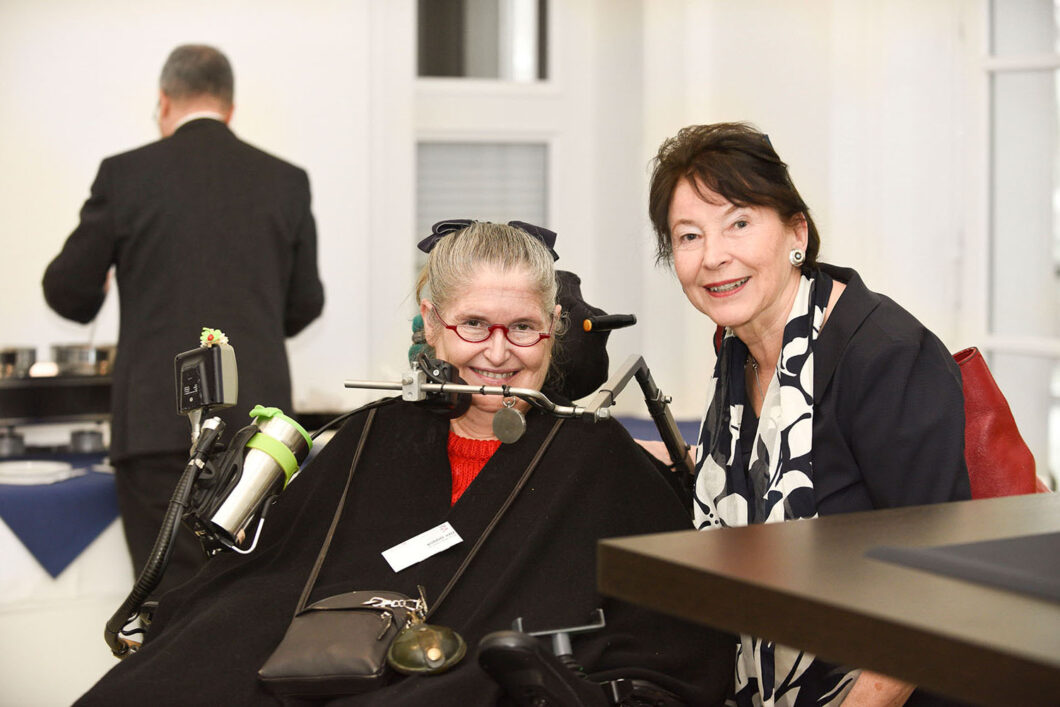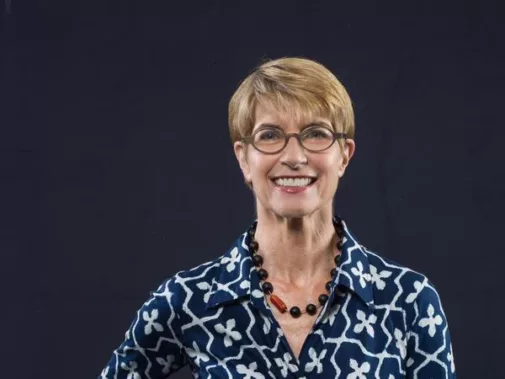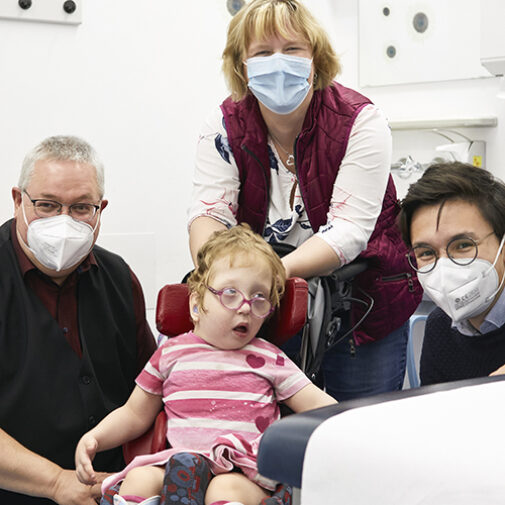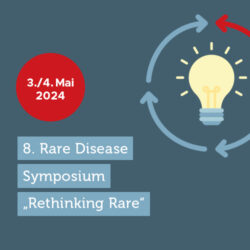Help for those affected

For families affected by rare diseases, self-help groups are often important contact points that provide information, network knowledge and help to break through isolation. Patient organizations also often provide crucial impetus for research. This is reflected not least in the mandatory involvement of patient representatives in the European Reference Networks (ERNs).
Alliance of Chronic Rare Diseases (ACHSE e.V.)
For some years now, scientific, medical and health policy interest in rare diseases has been on the rise. This success is primarily due to the tireless commitment of patient organizations and the doctors and scientists who support them.

Eva Luise Köhler has been the patron of Alliance for Chronic Rare Diseases (ACHSE e.V.) since 2005. As an umbrella organization, ACHSE represents the interests of affected patients and their families in the political arena. ACHSE also provides concrete help in the search for reliable information and contacts to treatment centers and self-help groups.

Are you a doctor or therapist looking for experts or specific research activities in the field of rare diseases?
Then ACHSE liaison Dr. Christine Mundlos can help you with a broad network of specialists.
First contacts
Centers for Rare Diseases
People with rare or as yet unexplained diagnoses are dependent on up-to-date knowledge about their often very complex clinical pictures. This is why there are now virtual Centers for Rare Diseases (ZSE) at over 30 university hospitals across Germany. Here, medical or non-medical pilots coordinate the multi-professional collaboration of various specialist areas. This gives those affected access to modern diagnostic procedures, qualified doctors and specialized therapists.

How do patients with a suspected rare disease get an appointment at a ZSE?
Centers for Rare Diseases (A-Centers) are the first point of contact for patients with unclear clinical pictures without a diagnosis. The criteria for the admission or referral of new patients differ from center to center and are usually explained on the respective ZSE website. In most cases, a referral from the family doctor is required. Doctors should contact the pilot of a local ZSE directly to discuss any further procedures. If they do not have sufficient expertise on the disease in question, they will help you find a suitable center.
A good source of information is the SE Atlas, which has kindly provided us with its CSE map.

Helfen Sie den Waisen der Medizin!
Die ELHKS setzt Ihre Spenden gezielt ein – damit medizinischer Fortschritt alle erreicht.
Did you know, that...
Quality assurance: Centers for Rare Diseases
The National Action Plan for Rare Diseases has defined certain criteria for the recognition of a ZSE as a reference center (type A center). For example, a ZSE must prove that research and care activities are on equal footing and that interdisciplinary case conferences are held. As a member of the NAMSE network, the Eva Luise and Horst Köhler Foundation has advocated an audit procedure for the quality assurance of this extremely important care structure. An independent certification body audits the centers and certifies their quality. The first 12 centers have now been successfully certified.
Case study cancer centers: The cancer centers, which have been operating successfully for years, have proven their quality with their “OnkoZert” certification procedure,
An orderly certification process can promote cross-location collaboration and spare seriously-ill patients valuable time — whether that is waiting time or unnecessary time wandering from doctor to doctor in the healthcare system. This is a win-win situation that also benefits the healthcare system: it eliminates the high costs associated with repeated diagnostics, unnecessary interventions and consequential damage. We owe the sharp rise in survival rates for many cancers not only to innovative drugs, but in particular to the personnel-intensive care provided by interdisciplinary teams.
-

Tenders
Alliance4Rare call for proposals: Funding for research projects on rare diseases
The Alliance4Rare - Research Initiative for Children with Rare Diseases is once again inviting proposals for up to three research projects with a maximum duration of 3 years and a…
-

Research
8th Rare Disease Symposium: “Rethinking Rare”
Rethinking Rare" - we cordially invite you to join us for the 8th Rare Disease Symposium on May 3-4, 2024 in Berlin. Get actively involved in rethinking, forward thinking and…
-

Events
Presentation of the 16th Eva Luise Köhler Research Award for Rare Diseases
Eva Luise Köhler will award the Research Prize for Rare Diseases that bears her name on Friday, May 3, 2024 from 6 p.m. at the Berlin-Brandenburg Academy of Sciences and…
Newsletter Subscription
Our free newsletter informs you about current calls for proposals, events and projects concerning rare diseases.